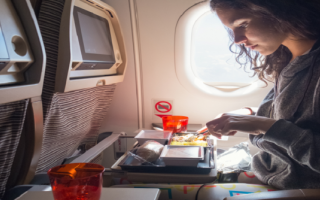
Research has shown that food consumed in the first days of flight can cause problems with astronauts' digestion. To avoid unpleasant sensations in the body and related gas production, it is recommended to avoid carbonated drinks and prefer water and non-carbonated tea. Experts also warn that prolonged sitting in a confined space can lead to gas formation and complicate the transition from solid food to a soft diet.
Nutrition and fitness specialist Michael Shidi emphasized that it is not recommended to consume food during flights, even if you are in first class and they offer exquisite dishes. In his podcast, he warned about the negative effects of cabin pressure and altitude during the process of digestion. Changes in atmospheric pressure and the movement of the aircraft can hinder the transition from solid food to a soft diet, causing bloating and related gas production.
For passengers suffering from irritable bowel syndrome, these symptoms can worsen. A gastroenterologist from New York, Dr. Elena Ivanina, confirmed that problems with digestion and bloating during flights are a real issue that should be avoided. She advises passengers suffering from gastrointestinal disturbances, such as Crohn's disease or ulcerative colitis, to avoid eating during flights.
Ivanina recommends that passengers consume food before and after the flight, especially if they have issues with digestion. Research confirms that changes associated with time zone shifts and diet regimes affect the digestion process.














